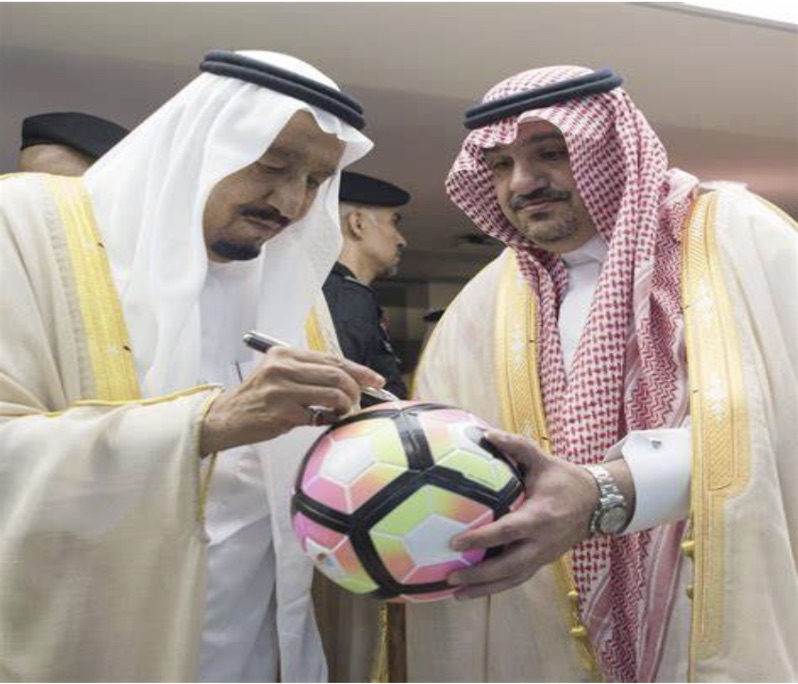By: Jacob Weiszer

Have you watched a LIV Golf (LIV) tournament this year? If not, you’re probably not alone. LIV Golf, a $2 billion Saudi-Financed professional golf tour which has massively underperformed its PGA counterpart, amassing just 89,000 viewers on the final round of its Chicago event. In comparison, the PGA tour’s final rounds average over 500,000 viewers with the masters drawing in 12 million people. The Saudi Pro Soccer League is also facing similar shortcomings as its revenue from the 23/24 season ($120 Million) was less than the salary alone of its highest paid player, Cristiano Ronaldo ($200 Million). The trend of autocratic nations spending millions of dollars on sports leagues with minimal return is surprisingly common among autocracies or autocratic governments. For example, the Chinese Basketball Association (CBA) and the Iran Super League also brought in expensive foreign talent but failed to mimic the success of their better-known counterparts.
So why do countries, particularly non-democratic states, continue to create sports leagues that are destined to fail? The answer lies in soft power. Soft power is power deriving from economic and cultural influence and diplomacy, rather than coercion or military strength. This specific use of soft power through sports has been named “sportswashing.” Countries including Saudi Arabia, China, and Iran have long used their cultural influence in addition to their economic prowess to distract from their political atrocities and diminishing qualities of life. The most recent example of which was the 2022 World Cup in Qatar, a small gulf state that borders Saudi Arabia.
2.45 million people from across the globe flocked to Qatar to watch the greatest soccer players play in newly constructed stadiums that cost an estimated $10 billion to build, the most expensive in World Cup history. Qatar spent over $220 billion total to prepare the country to host the events. The country saw a $17 billion return on their investment, tourism is expected to triple from 2020-2030, and Qatar is set to win host bids for numerous other events including the swimming championships, formula one races, and possibly the 2036 Summer Olympics.
Their greatest gain from the World Cup, however, came through soft power. Before the players took to the field, Qatar was emerging out of a three-and-a-half-year diplomatic and transport blockade from Saudi Arabia and the United Arab Emirates (UAE). Leaders from both countries attended the games in-person and the crown prince of Dubai even publicly congratulated Qatar for the job it did in organizing the event. Qatar has been known internationally for its strict stance on LQBTQ+ rights, the low social status of women, and its exploitation of migrant rights through the Kafala Labor System, under which over 500 migrants died during the construction of World Cup sites. One of its strongest human-rights record critics, Germany, entered into a natural gas deal with Qatar in the build up to the World Cup as the country promised to implement a minimum wage and end its use of Kafala. The opportunity to host such a prominent event as the World Cup propelled Qatar on the international stage, enhancing its diplomatic leverage and encouraging reform efforts that aimed to improve its global image.
Saudi Arabia has also faced similar human rights criticisms on the international stage as restrictions on rights of women, strict border policies for migrants, and use of the death penalty for non-violent crimes have isolated the country from being able to establish diplomatic relations with many states. Saudi’s endeavors to brand the country as a cultural metropolis instead of just the world’s supplier of oil has seen tourism to the country increase by over 56% in the past five years and preliminary breakthroughs in international relations with the visit of Li Hui from China, the powerhouse of Eurasian diplomacy. Saudi Arabia hopes to take the next step toward securing soft power by submitting a bid to host the 2034 World Cup with hopes of mirroring Qatar’s success. Amid calls from human rights organizations for Fédération Internationale de Football Association (FIFA) to not award the country with the World Cup, Saudi Arabia has denied engaging in any “sportswashing” and vows to make significant social reforms before the games. As of now, Saudi Arabia is the only country to have submitted a bid and a vote will take place in December to give the country the go ahead.
“Sportswashing” seems to be here to stay and countries will continue to use soft power to foster diplomatic ties with other states and repair strains with long-term rivals. As an international community, we need to see past just the eye-popping events that are presented to the world and recognize the inequalities that are taking place behind the curtains. By calling out the issues they have turned a blind-eye to and demanding they do better, there is hope that significant reforms will be enacted like those in Qatar so that the world becomes a more fair and just place.